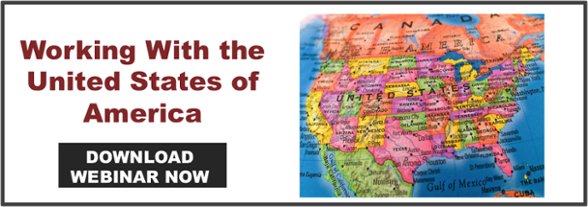
Our guest blogger today is Varun Bhaskar, a CultureWizard user and Human Capital Leader for PwC in India.
Many Indians have immigrated to the US for academic and career opportunities. In 2012, I had the opportunity to begin an international assignment in the US, courtesy of my company. I was ready for a life-changing experience. Like many others, I expected the American dream straight out of a Hollywood movie - a life full of luxury and comfort. The reality however was far from this and it hit me as soon as I stepped off the plane.
Below are some of my personal observations and feedback that I received which, in hindsight, I wish I’d known earlier to have had a greater and quicker positive impact with my US colleagues.
1) Language: Many Indians grow up speaking, reading, and writing in English, but there is a huge difference in the way the language is used in the US. You could be an expert in your field, but if you’re unable to speak or write in a way that your audience will understand, your impact will be limited. I learned to adjust to the different sentence structures, speech patterns, usage of contractions, strong accents, intonations, and vocabulary, among other nuances. There are many online courses and local institutes in the US which can help you in mastering business English.
2) Family and peer pressure: I know many Indian families who believe that work opportunities in the US are enviable and a symbol of success. There is a lot of pressure from family to succeed. I channeled these high expectations by overcoming my cultural challenges and learning to accept and adjust to the American way of life. I wanted to make my family proud and that motivated me to keep learning.
3) Social behaviour: I followed the common advice of “When in Rome, do as the Romans do.” I learned social etiquette by watching others. I learned to express and accept gratitude by saying thank you, sorry, excuse me. Simple things became the norm, like exchanging smiles, politely greeting everyone including strangers, discussing the weather, movies, weekends, football, food, etc... I realised the need to address service people politely and with respect. I learned humility in the form of not boasting about my accomplishments, achievements, and possessions. Respecting a queue and waiting for my turn was a change. Etiquette like proper eye contact without staring at people, not standing too close to someone when speaking, and not directly point at people or objects using the index finger, were all learned traits.
4) Communication: In general, research shows that a majority of the people raised in the West are very clear, direct and concise in their communication style. They like planning, including scheduling time for calls and meetings. Calling directly or expecting an unplanned meeting might be considered rude. There is also an option to leave a voice mail on the phone, and when leaving a message, one must speak slowly, clearly, and always share contact details. I quickly learned when I was there to open with my conclusion and then include the back story if they ask for it. Depending on my audience, I sometimes had to rely more on facts and figures or shift to include more instinct and feelings. I found that there are many common phrases and idioms, and quite a few confusing terms, such as: “play hardball,” “my pet peeve,” “against the clock,” “under the weather,” “drop the ball,” “Monday morning quarterback,” etc. It would be a good idea to research these phrases on the Internet to avoid completely missing the message.
5) Independent: I was surprised to see how much individualism and independence is recognised and valued. I noticed a lot of children that were expected to leave their parents’ home much earlier than what I was used to seeing in India. They were surprised when they learned through my experiences that we are raised to be more dependent, especially on friends and/ or extended family, even as adults. Unlike in India, where I used to reach out to a friend or colleague for guidance on questions before trying to solve it myself, in the US, I soon began to do self-research before reaching out for help. It’s a habit I’d encourage you to start building today, in case you haven’t already. A great example to summarise this point would be asking for driving directions in India vs. using GPS or a mobile app in the US.
To be continued...
More about our guest blogger:
Varun has always followed a data-driven approach to HR solutions and is passionate about people, their diversity & cultural dexterity, and believes these traits are the key to innovation and competitiveness in the 21st century. Varun holds a Bachelors in Commerce, an MBA in Human Resources & Marketing, and a PhD in Organizational Development & Effectiveness.
Want to continue the learning before Varun's next post? Download our Working With the USA webinar below!


